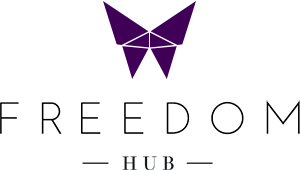What is the Modern Slavery Act?
In 2018, in an attempt to combat modern slavery, Australia introduced a new piece of legislation called the Modern Slavery Act. Under this act, companies with a turnover of more than $100 million annually must publicly report on the risks their operations and supply chains have on modern slavery. In Australia, more than 3,000 businesses were expected to be involved.
The act holds companies accountable and holds the systems and people in their supply chains accountable, with very little room for anyone to claim ignorance.
In support of the act, the government announced that $3.6 million of the budget would go towards contracting a particular unit called the Modern Slavery Business Engagement Unit.
But has it been enough?
What was the initial reaction to the Act passing?
It seemed like support for the Act came from both sides of politics; however, there were differing opinions on the bill’s details, specifically regarding the revenue threshold and subsequent consequences of not reporting. Most private sector stakeholders favoured a threshold of $100 million or higher and were not in favour of including penalties for not complying with the reporting laws. On the other hand, civil society stakeholders favoured a lower threshold of $50-60 million or lower and supported the inclusion of penalties, arguing that the “mandatory reporting” would be voluntary.
As we have it now, the Act capped the revenue at $100 million or more and did not include any penalties for refusing to report.
Four years later – what’s the impact?
It’s now 2023, four years since Parliament passed the Modern Slavery Act. An Independent Review of the Act has found that it hasn’t brought “meaningful change for people living in conditions of modern slavery.” The final report makes thirty recommendations, which, if implemented, would require thousands more businesses to take action and accountability for their operations and supply chain. Two of the key recommendations are lowering the revenue threshold to $50 million and introducing penalties for failing to report. It’s these two recommendations that I believe will lead to tangible change in how businesses in Australia operate and how we as the public and consumers hold these businesses accountable.
What now?
A new global research into the prevalence of modern slavery estimates that the number of victims of modern slavery has increased by 10 million since 2016. While the Modern Slavery Act is a step in the right direction, it hasn’t done enough. Despite its name, the act doesn’t address the various forms of slavery and exploitation that fit under the umbrella term “slavery” but instead focuses exclusively on labour exploitation in the private economy.
There’s no doubt that the Modern Slavery Act has raised political and social awareness about modern slavery; however, it’s harder to argue that it’s done much to protect and fight for the 45,000 people in Australia who are victims of slavery. The Albanese government went into last year’s federal election promising to amend the Act to include penalties for non-compliance and appoint a commissioner. This promise coupled with the thirty recommendations looks promising.
Companies must be transparent and report on the risks their operations and supply chains pose to people’s livelihoods.
These same companies must required to make adequate changes.
There is hope that in the upcoming years, change will come. There is support for this kind of change from both the left and right because no one wants to buy goods or services from someone who is a victim of slavery.
How can The Freedom Hub help?
The Freedom Hub and our Ethical Business Advisory offers services that:
- provide a gap analysis in your company Modern Slavery Statement and recommendations to improve
- a three year strategy to work on your response to slavery
- a remediation plan for the identification of modern slaves
- a Survivor Advisory on your company policies and processes ensuring lived experience is considered
- opportunities to sponsor or employ a survivor of modern slavery
- an easy to use and practical Risk Analysis and Measurement Platform (R.A.M.P) that assists your company in managing suppliers, assess your supply network, manage your risk and controls to mitigate and remdiate slavery. It includes a comms tool with a dashboard, an internal work flow and an audit trail to get your team off spread sheets. Ask for a free demo HERE.
Join Our Team
Help raise awareness and join our local volunteer team; contact us here.
Or, if you’d like to opt into our monthly newsletter, opt in here.
If you would like to support our work, you can donate here.
*Information gathered from the Parliament of Australia website and The Conversation website.

